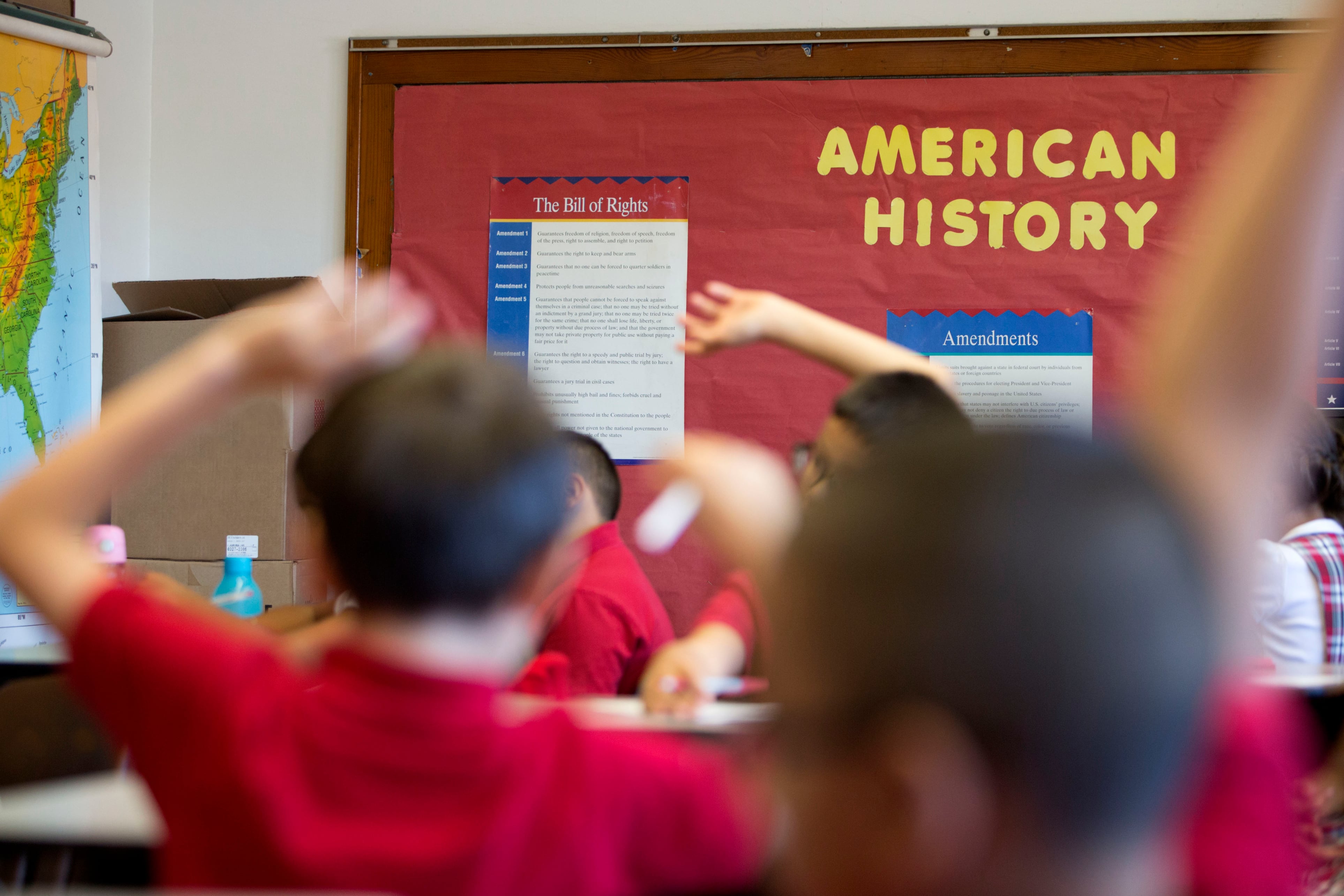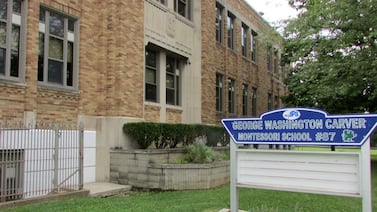Indiana senators pushed back a vote on a controversial curriculum control bill on Wednesday in order to allow for further changes after approving an amendment that tempers some of its provisions.
In public testimony, dozens of speakers told the Senate Committee on Education and Career Development that no changes could rehabilitate House Bill 1134, which still bans three “divisive concepts” from the classroom.
Among the speakers was Troy Fears, executive director of CANDLES, Indiana’s only Holocaust museum, who said teachers had told him they would hesitate to bring their classes on field trips to the museum should HB 1134 pass, for fear of complaints from parents.
Pastor Jerry Rairdon of the Noblesville First United Methodist Church also spoke in opposition to the bill, saying that as a history major in college, he had never heard of Tulsa’s Black Wall Street and the massacre that followed.
“Even as it’s amended, (the bill) is still an act of censorship intended to reduce meaningful conversation,” Rairdon said. “My grandchildren need to receive a more complete understanding of history than I received. We need to make room for meaningful conversations surrounding race, not limit those conversations.”
As amended, House Bill 1134 would give districts the option to create curriculum review committees of parents, rather than mandating the outside committees as originally written. The bill also would erase the requirement for schools to post a year’s worth of curriculum material online, requiring instead only that they make materials available upon request.
The amended bill lists three — down from an original eight — topics that teachers couldn’t promote in the classroom. Legislators have refused to remove the list, which has drawn sharp criticism.
The committee delayed voting on the bill until next week, Chairman Sen. Jeff Raatz (R-Richmond) said.
Opponents have said the bill discounts teachers’ professional training and censors classroom discussions, while proponents have said it’s necessary to offer parents a window into what their children are learning.
Sen. Linda Rogers (R-Granger), the Senate sponsor of the bill, said in opening remarks Wednesday that her amendment sought to give parents a path to involvement in schools while recognizing the work of the state’s 80,000 teachers, who she said should spend their time in the classroom rather than filling out paperwork.
Some teachers “go too far,” she said, and the bill would “rein them back in or have them moved to a different field,” but she did not provide examples.
The committee cut off public testimony after one hour and 45 minutes despite nearly 200 people signing up to speak, 91% of whom were speaking in opposition, according to Raatz.
Gwendolyn Kelley, an independent education consultant who said she works closely with the NAACP, the Indianapolis Alliance of Black School Educators, and other civil rights groups, said the African American community did not support the bill and didn’t want to see it passed.
“House Bill 1134 is unnecessary, complicated and divisive, and it has aroused the Black community to join with me and say, why, why this bill?” Kelley said, adding that she wanted the state to focus not on social and emotional learning and surveys, but on academic outcomes for Black students.
Parent Kyle Richardson said that as a gay man, he opposed language in the bill that required school staff to first contact parents before providing mental health services to students.
“I know friends who have struggled with their parents not supporting them, and I have lost friends to suicide,” Richardson said.
To loud cheers from a crowd assembled outside the Senate chamber, a Noblesville High School student told lawmakers about experiencing thoughts of suicide in seventh grade, and said the language of the bill would have prevented a trusted teacher from providing help.
“If I had known I had to get parental permission to talk to a teacher or counselor, I never would have opened my mouth in the first place. I was too embarrassed to admit what I thought was my greatest weakness,” the student said.
Three people on Wednesday expressed support for the bill, though the amendment alienated some original proponents, including Attorney General Todd Rokita’s office.
Parent Dawn Lang said she supported the bill, and especially its focus on transparency through online learning management systems at schools.
Lang said that though she was a “parent in a sea of red,” in reference to the Red for Ed shirts that teachers and other opponents of the bill wore, she represented more parents who couldn’t come and testify.
“My concern is that the parents are going to take their students out of the school systems and move and transfer to private or home school if they can’t feel that their voices are being heard,” she said.
The committee adjourned just after 6:30 p.m. despite some confusion over whether lawmakers would have time to ask questions, or whether they could allow more public comment.
Many still waiting outside the Senate chamber could be heard calling for a chance to speak.
Aleksandra Appleton covers Indiana education policy and writes about K-12 schools across the state. Contact her at aappleton@chalkbeat.org.







